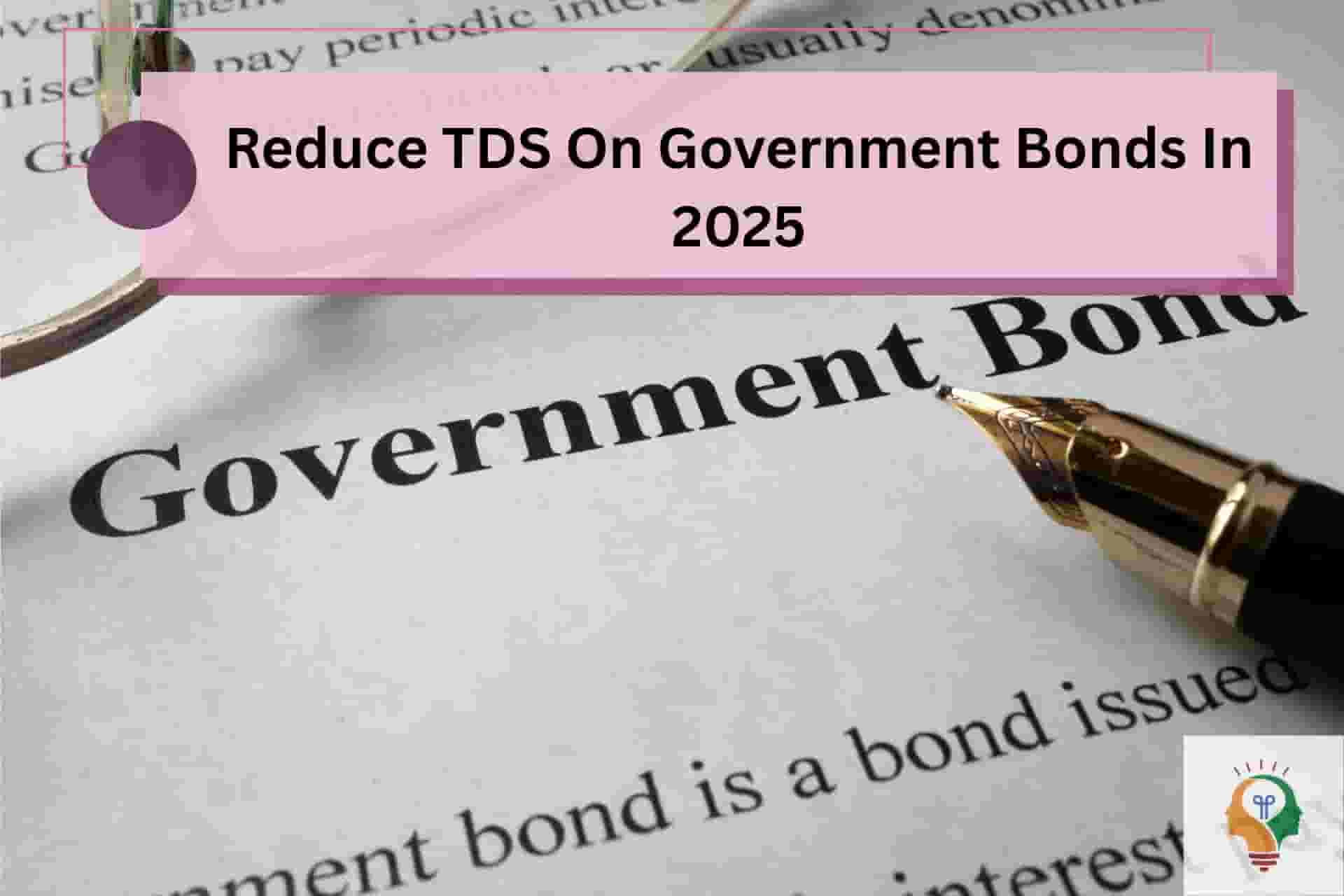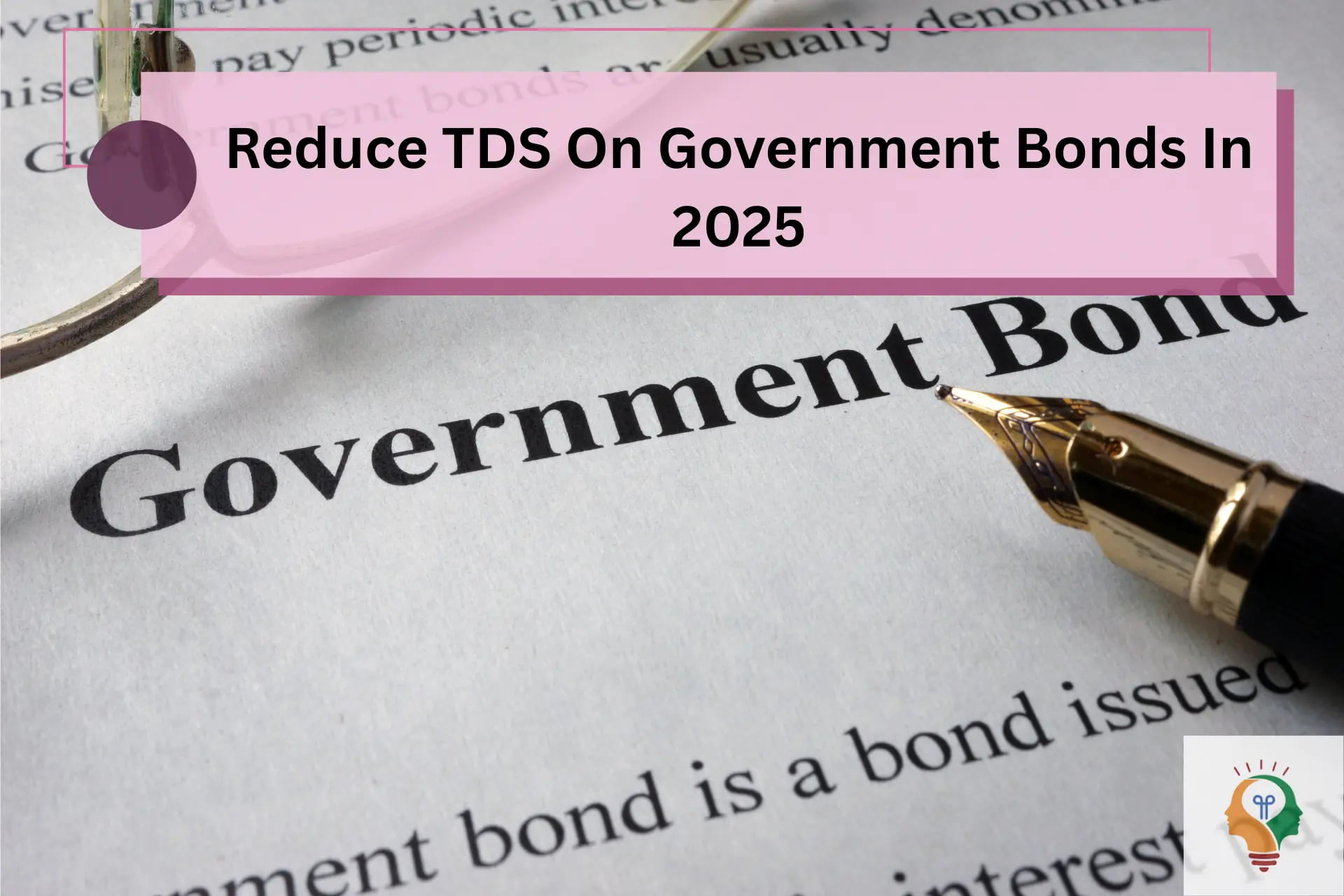How To Reduce TDS On Government Bonds In 2025?
Updated: 12-10-2025 at 6:38 PM
1k


In the Union Budget 2024 it was announced that TDS will be deducted at 10% from specific central and state government bonds, including floating rate bonds. It will be implemented from October 1, 2024. The CEO of InCred Money, Vijay Kuppa said "In the Union Budget 2024, the Government has proposed a 10% TDS on all central government securities, state government bonds, and state development loans (SDLs), effective from October 1, 2024.”
What Is Tax Deductable At Source And How Does It Work?
TDS is a part of income tax. It has to be deducted by a person for certain payments made by them like rent, commission, professional fees, salary, etc. It is a way for the government to collect tax directly from people’s income.
Let’s understand how TDS works with an example.
Rahul pays Rs 1,00,000 per month as rent for an office to the property owner. By law, Rahul needs to deduct 10% as TDS. This means Rahul will deduct Rs 10,000 as tax and give the remaining Rs 90,000 to the owner. So, the owner receives Rs 90,000 after the tax is deducted. Later, the owner will add the full amount of Rs 1,00,000 to his income when filing taxes and can use the Rs 10,000 that Rahul already paid as a credit towards his final tax bill.
What Is The New Rule?
The government introduced a new rule that imposes a 10% Tax Deducted at Source (TDS) on income from government bonds. With the new rule introduced by the government, any interest earned from government bonds will now have a 10% Tax Deducted at Source (TDS) applied.
Let’s understand with an example.
If Mr X earns Rs. 10,000 in the form of interest from government bonds, 10% of the amount, which is Rs. 1,000 will be deducted as tax before he receives the money. This means that instead of getting the entire Rs. 10,000, he will only receive Rs. 9,000.
However, TDS is not an additional tax but is a method for the government to collect tax early. When filing their tax return at the end of the year, they will report the full ₹10,000 as income. They can then use the ₹1,000 that was already deducted to reduce their total tax liability. If more TDS was deducted than necessary, they could be eligible for a refund.
When less TDS is deducted, taxpayers receive more money. This money can then be reinvested to gain more. It also saves them the hassle of waiting for a refund when filing their tax returns.
How To Pay Lower TDS Or Zero TDS?
Taxpayers can still avoid paying TDS or reduce the 10%. The government has allowed investors to submit a specific certificate that will help them lower the TDS rate or even avoid it completely.
-
Get Form 15H or Form 16G.
-
Declare that the total income is below the taxable limit, so no TDS should be deducted.
-
Fill out the form with the necessary details.
-
Submit the form to the organisation or bank from which the government bonds are being purchased.
Form 15H is for individuals who are 60 years old or above, while Form 15G is for others. To be eligible, your total annual income should be below the taxable limit set by the government.
This has to be done during the beginning of the financial year to avoid paying TDS deductions.
Conclusion
The new rule introduced by the government might be a bit financially straining for taxpayers, but staying informed and updated on TDS can help them reduce the impact of the deduction. By following the mentioned steps and submitting the Forms, individuals can help reduce or even completely cut down the TDS on their bond income.
Visit Jaagruk Bharat for the latest insights on income tax and more.
Frequently Asked Questions
0
0
1k
0
0
1k Views
0
No comments available





Our Company
Home
About
T&C
Privacy Policy
Eula
Disclaimer Policy
Code of Ethics
Contact Us
Careers
Cancellation & Refund Policy
Categories
Women
Insurance
Finance
Tax
Travel
Transport & Infrastructure
Food
Entertainment
Communication
Government ID Cards
E-commerce
Traffic guidelines
Miscellaneous
Housing and Sanitation
Sports
Startup
Environment and Safety
Education
Agriculture
Social cause
Employment
Disclaimer: Jaagruk Bharat is a private organization offering support for documentation and government scheme access. We are not affiliated with any government body. Official services are available on respective government portals. Our goal is to make processes easier and more accessible for citizens.
All Copyrights are reserved by Jaagruk Bharat